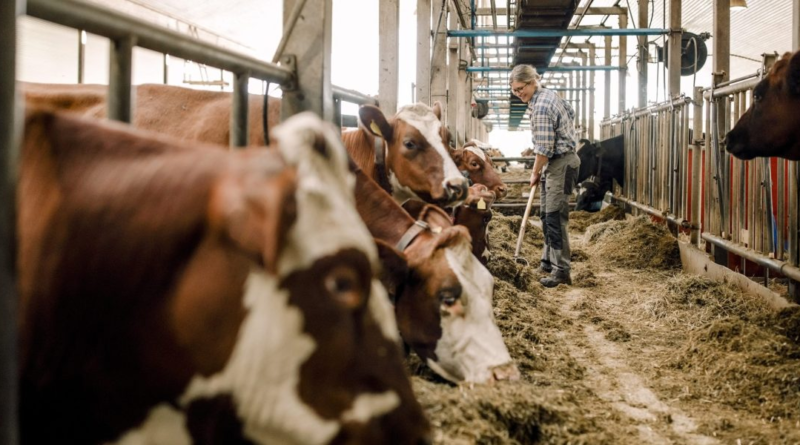Forget carbon taxes on cars—Denmark is charging farmers a $100 ‘burp tax’ per cow
Denmark is set to become the first country to hold bovines accountable for their carbon footprint.
Following an agreement earlier this week by the Scandinavian nation’s coalition government, lawmakers announced a plan to tax farmers about $43 (300 kroner) per ton of carbon dioxide equivalent emitted by cows, pigs, and sheep, which account for a huge portion of global methane emissions. The tax, which is part of a broader climate agreement to reduce emissions and preserve habitats, will go into effect in 2030.
“With today’s agreement, we are investing billions in the biggest transformation of the Danish landscape in recent times,” Foreign Minister Lars Løkke Rasmussen said in a statement Tuesday, according to CNN. “At the same time, we will be the first country in the world with a [carbon] tax on agriculture.”
Agriculture is a major culprit in the global climate crisis. In 2015, livestock farming alone contributed around 12% of man-made greenhouse gas emissions, according to the UN’s Food and Agriculture Organization.
And in Denmark, a major exporter of dairy and pork, that problem is even more pronounced. A quarter of the Scandinavian nation’s greenhouse gas emissions come from agriculture, more than any other sector, according to a 2022 report from the European Commission.
Because of a 60% tax break that was a part of the agreement, the actual cost per ton of CO2 equivalent for farmers will be just 120 kroner ($17) for the first five years of the policy. The average dairy cow in Denmark produces 5.6 tons of CO2 equivalent per year, according to Danish think tank Concito. That will equate to an annual tax of 672 kroner per cow—or roughly $96. In 2035, the rate will go up to 300 kroner per CO2 ton ($42).
The levy is expected to be approved by the Danish parliament later this year, and while it would be the first time such a policy has been implemented, it isn’t the first time a country has tried. In fact, the “burp tax” is coming to Europe right after it died on the vine in Oceania.
Agriculture tax in New Zealand
Grassy New Zealand was actually the first nation to propose a burp tax, back in 2022. The island nation is dominated by livestock—both in terms of economics and population. In 2023, dairy accounted for 28% of its exports, according to the International Trade Administration, and cows and sheep outnumber people seven to one.
If it had stuck around, the policy would have started taxing New Zealand farmers next year, but the plan sparked outrage in the agricultural industry. In 2022, Andrew Hoggard, head of New Zealand’s agriculture lobbying group, said it would “rip the guts out of small-town New Zealand.”
Earlier this month, the country’s new center-right government said it was scrapping the plan and exploring other ways to reduce methane emissions.
Pushback from European farmers
In Europe, agriculture groups have responded to Denmark’s announcement with mixed feelings.
In a statement on Tuesday, Peter Kiær, chairman of the Danish farmers’ group Bæredygtigt Landbrug, called the plan bureaucratic and unnecessary.
“We recognize that there is a climate problem, and Danish agriculture will help solve it,” Kiær said. “But we do not believe that this agreement will solve the problems, because it will put a stick in the wheel of agriculture’s green investments.”
Kristian Hundeboll, the CEO of DLG Group, a Danish-owned cooperative that is one of the largest farm supply companies in Europe, told CNN that for Danish farmers to stay competitive, the policy would have to coincide with European Union legislation.
“Neither the climate, agriculture, nor the ancillary industries benefit from Denmark acting unilaterally,” he said.
Enacting any kind of similar policy across the bloc may be hard to achieve. The climate lobby in Europe is on the back foot after sweeping legislation to restore damaged habitats was shelved in March following a wave of farmer protests that embroiled the continent. Earlier this month, elections for the European Parliament—the legislative body of the European Union—resulted in significant gains for the political right.



